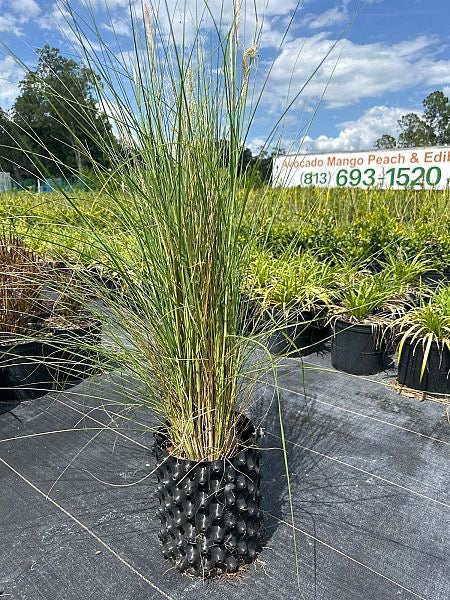
White Fountain Grass
White Fountain Grass (Pennisetum setaceum 'Alba')
Common Names: White Fountain Grass, African Fountain Grass, Tender Fountain Grass.
Best Growing Environment: White Fountain Grass, originating from regions of Africa, the Middle East, and Southwest Asia, thrives in a variety of soils. However, well-draining soil offers the optimal environment. Although established plants exhibit drought resistance, consistent watering during its early growth stages and prolonged dry spells fosters optimal health.
Average Height: Generally, this ornamental grass reaches heights between 3 to 5 feet. Its distinctive arching leaves and feathery plumes (seed heads) can occasionally push this height a bit taller.
Average Diameter: The typical spread of White Fountain Grass ranges from 2 to 4 feet, influenced by its growing conditions and maintenance.
Growth Rate: Recognized for its moderate to rapid growth, White Fountain Grass can swiftly occupy garden spaces, offering its cascading plumes as a picturesque element.
Sun Requirements: Full sun exposure propels this grass to flourish, resulting in dense foliage. While it can tolerate partial shade, it might reduce the plant's bloom production.
Cold Hardiness: Ideally suited for USDA zones 8-11, White Fountain Grass manages light frosts well. In cooler climates, consider annual cultivation or overwintering indoors for container-grown plants.
Water Requirements: As the grass establishes, consistent moisture is vital. Mature plants can bear drought conditions, but benefit from sporadic deep watering during extended dry periods.
Fertilizing Guide: At the onset of spring, introduce a balanced, slow-release fertilizer. This invigorates growth and enhances blooms. Adhering to an annual fertilizing routine typically suffices. Always observe manufacturer instructions regarding dosage and application methods when using fertilizers.
Planting Guide: Seek out a sunny location that provides ample drainage. Prepare a hole approximately the depth of the root ball and twice its width. Position the grass, refill with soil, and saturate with water. When planting multiple grasses, maintain a 3-4 feet gap to allow for growth. For those cultivating in containers, ensure they offer adequate drainage.
USDA Zone: White Fountain Grass flourishes best within USDA zones 8-11. While it showcases moderate frost resistance, it often sees cultivation as an annual in colder zones or necessitates protection against freezing temperatures.
In conclusion, White Fountain Grass is a splendid addition to gardens and landscapes, injecting texture, movement, and a refined aesthetic. Whether serving as a garden's centerpiece or providing a complementary backdrop, its feathery plumes and arching foliage remain a garden favorite.

